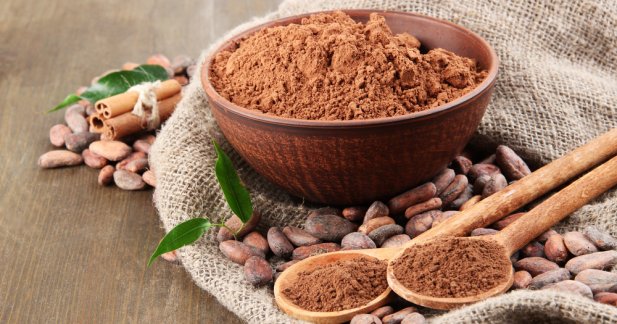
Cacao and Cocoa – What’s the Difference?
December 6, 2022
Are you confused about the difference between cacao and cocoa? Well, you are not alone. There is actually a lot of misunderstandings about these two, but they pretty much have a lot in common (Hint: Chocolate). Let’s get to know more about them, shall we?
The term “cacao” dates back to the Olmec People in Mesoamerica in 1500 BCE. Research says “cacao” was derived from “kakawatl” or “cacáhuatl” which is an Aztec indigenous Nahuatl word. However, when the Spanish came to America, it was translated to “cacao”.
But how did “cacao” become “cocoa”?
According to research, it may have been a simple spelling mistake when the Spanish word was translated to English. Which is also why the term “cocoa” is very seldom used in Hispanic languages. However, this mistake was never corrected and instead, “cocoa” is now being widely used.
What is Cacao and Cocoa?
Cacao grows from the tropical tree whose scientific name, Theobroma cacao, translates to “food of the gods” in Greek. It originated in the upper Amazon basin region (Brazil, Colombia, and Peru). When cacao pods are harvested from the tree, they are turned into cocoa, and then processed into the yummy chocolates that we all love.
This process starts with the cacao pods being harvested from the cacao tree, and opened to remove the seeds. They will be fermented for about 2 days up to a week to eliminate bitterness, and then will be cleaned and dried under the sun. After drying, the beans will be roasted and then peeled to produce the cacao nibs. At this point, some cacao nibs are already being sold and consumed. Or they go to the next step in chocolate process which is grinding. This is where cacao nibs are ground into a chocolatey paste called chocolate liquor or cocoa mass.
Chocolate liquor is then pressed to separate the fat and the solid part. The fat is the cacao butter and the solids are then made into cocoa powder. Cacao butter can be used for cosmetics and medicines, or for baking and cooking. Once butter is removed, the remainder can be pressed and dried into cocoa powder.
You can also use chocolate liquor to create dark and milk chocolates, while its alteration can be made into milk chocolates by using its fat. You can also mix it with other ingredients to make ice cream, beverages, and baked goods. It is also commonly called as baking chocolate.
Benefits of Cacao and Cocoa
Cacao was believed to reduce risk factors for heart disease. In fact, the higher the percentage content is, the more benefits there are. According to research, dark chocolate contains antioxidants called flavonoids, that are good for lowering blood pressure and inflammation in the body.
It also helps improve your body’s metabolism and nervous system. The secret to this is that an antioxidant epicatechin with just the right amount of B-complex vitamin and other minerals such as iron, selenium, calcium, magnesium, potassium, manganese, and zinc, which are all good for your heart and blood pressure.
However, the process of turning cacao into cocoa powder affects the nutrients present. The heat and chemicals used in this process strip the naturally occurring flavanols, minerals, and antioxidants present in raw cacao. In addition, cocoa powder has gone through different manufacturing processes and may have already contain sugar and milk.
Conclusion
At the end of it all, eating chocolate has both health benefits and risks. Technically speaking, since cacao is raw and unprocessed, it could be a good source of antioxidants and minerals which are beneficial for our health. Cocoa, on the other hand, has gone through heating and other chemical processes that may affect the nutrients it contains.
You should always check the label for the calorie, fat and sugar content, which could potentially affect your chocolate's overall health benefit. And as long as it gives you happiness, and taken in moderation, chocolate can be your partner in health.
- Easy Chocolate Easter Nests Recipe - April 15, 2025
- The Best Chocolate Gifts for Easter (That Everyone Will Love!) - April 8, 2025
- National Chocolate Mousse Day: How to Make the Perfect Chocolate Mousse - April 1, 2025


